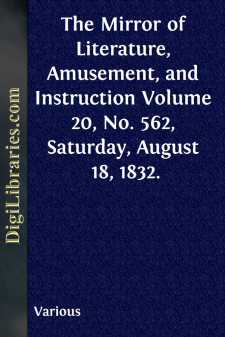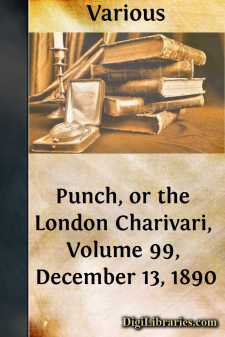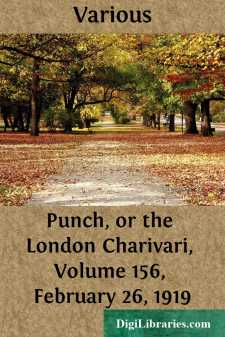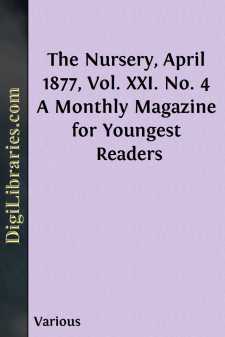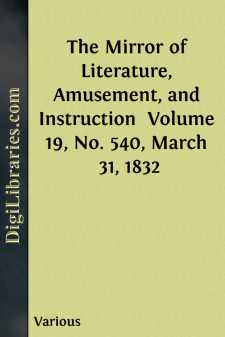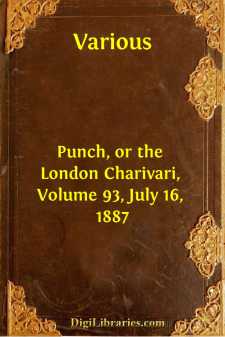Categories
- Antiques & Collectibles 13
- Architecture 36
- Art 48
- Bibles 22
- Biography & Autobiography 816
- Body, Mind & Spirit 145
- Business & Economics 28
- Children's Books 18
- Children's Fiction 14
- Computers 4
- Cooking 94
- Crafts & Hobbies 4
- Drama 346
- Education 58
- Family & Relationships 59
- Fiction 11834
- Foreign Language Study 3
- Games 19
- Gardening 17
- Health & Fitness 34
- History 1378
- House & Home 1
- Humor 147
- Juvenile Fiction 1873
- Juvenile Nonfiction 202
- Language Arts & Disciplines 89
- Law 16
- Literary Collections 686
- Literary Criticism 179
- Mathematics 13
- Medical 41
- Music 40
- Nature 179
- Non-Classifiable 1768
- Performing Arts 7
- Periodicals 1453
- Philosophy 66
- Photography 2
- Poetry 897
- Political Science 203
- Psychology 45
- Reference 154
- Religion 516
- Science 126
- Self-Help 86
- Social Science 82
- Sports & Recreation 34
- Study Aids 3
- Technology & Engineering 59
- Transportation 23
- Travel 463
- True Crime 29
Sort by:
by:
Various
FALLS OF THE GENESEE. The Genesee is one of the most picturesque rivers of North America. Its name is indeed characteristic: the word Genesee being formed from the Indian for Pleasant Valley, which term is very descriptive of the river and its vicinity. Its falls have not the majestic extent of the Niagara; but their beauty compensates for the absence of such grandeur. The Genesee, the principal...
more...
by:
Various
CHAPTER I. GEORGE GINSLING was alone in his College-rooms at Cambridge. His friends had just left him. They were quite the tip-top set in Christ's College, and the ashes of the cigarettes they had been smoking lay about the rich Axminster carpet. They had been talking about many things, as is the wont of young men, and one of them had particularly bothered GEORGE by asking him why he had refused a...
more...
by:
Various
TO THE GERMAN MILITARY PICTURE DEPARTMENT.[The enemy, in his turn, is exhibiting a film of the fighting on the Somme. At the close a statement is thrown upon the screen to the effect that the Germans have "reached the appointed goal."]On footer fields two goals are situated, One, as a rule, at either end: This for attack (in front) is indicated, And this (to rearward) you defend; In your remark...
more...
by:
Various
GOOD-BYE TO THE AUXILIARY PATROL. I.—THE SHIP. When it was announced that we were to be paid off and that the gulls and porpoises that help to make the Dogger Bank the really jolly place it is would know us no more, there was, I admit, a certain amount of subdued jubilation on board. It is true that the Mate and the Second Engineer fox-trotted twice round the deck and into the galley, where they...
more...
by:
Various
VOCES POPULI. THE RIDING-CLASS. SCENE—A Riding-school, on a raw chilly afternoon. The gas is lighted, but does not lend much cheerfulness to the interior, which is bare and bleak, and pervaded by a bluish haze. Members of the Class discovered standing about on the tan, waiting for their horses to be brought in. At the further end is an alcove, with a small balcony, in which Mrs. BILBOW-KAY, the...
more...
by:
Various
"WHY DID ELFRIDA GO TO SLEEP?" HAT was the question, "Why did Elfrida go to sleep?" She had been sent to the grocer's in the village; and the grocer's was only half a mile off from Brook Cottage, where she lived with her aunt and five cousins. She had been sent to buy a pound of sugar, half a pound of coffee, and five small rolls of bread.Usually she would go to the shop and...
more...
by:
Various
THE PHYSIOLOGY OF THE LONDON MEDICAL STUDENT. 12.—OF THE COLLEGE, AND THE CONCLUSION. Our hero once more undergoes the process of grinding before he presents himself in Lincoln’s-inn Fields for examination at the College of Surgeons. Almost the last affair which our hero troubles himself about is the Examination at the College of Surgeons; and as his anatomical knowledge requires a little polishing...
more...
by:
Various
MODERN TYPES. (By Mr. Punch's Own Type Writer.) No. XXII.—THE MANLY MAIDEN. The Manly Maiden may be defined as the feminine exaggeration of those rougher qualities which men display in their intercourse with one another, or in the pursuit of those sports in which courage, strength, and endurance play a part. In a fatal moment she conceives the idea that she can earn the proud title of "a...
more...
by:
Various
BANKSIDE.—OLD THEATRES. The ancient topography of the southern bank of the Thames (or Bankside) between London and Blackfriars bridges is peculiarly interesting to the lover of dramatic lore, as well as to the inquirer into the sports and pastimes of our ancestors. It appears to have been the Arcadia of the olden metropolis, if such a term be applicable to a place notorious for the indulgence of...
more...
by:
Various
ROBERT AT THE ACADEMY. I paid my reglar wisit to the Academy last week, and was glad to find that my werry ernest remonstrance of last year had perduced sech a change as regards Staggerers. No Miss Menads a hunting in Burnham Beeches without no close on to speak of, and no Mr. Cassandra a carrying off of a pore yung lady afore she's had time to dress, merely because she upset the salad-bowl. I...
more...


